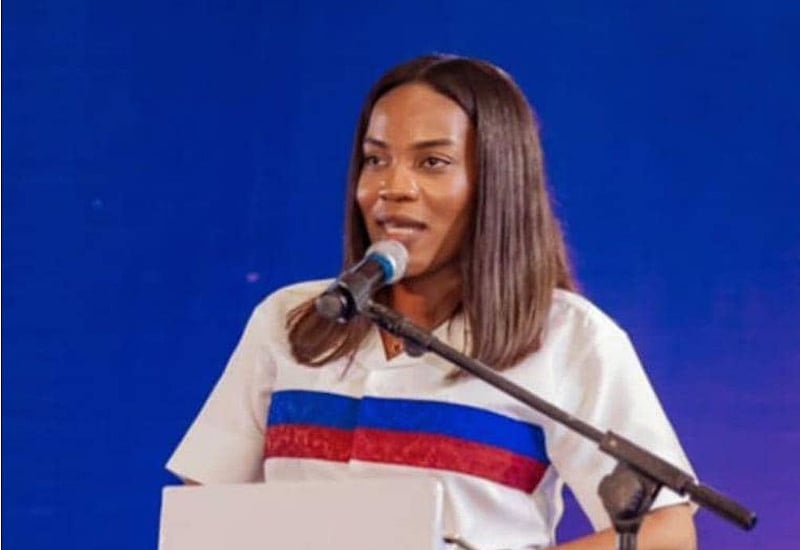The long-standing Bawku conflict, a complex web of ethnic tensions, chieftaincy disputes, and political maneuvering, has recently flared up once more, sparking violence and raising urgent security concerns in the region. Dr. Ekua Amoakoh, a communications team member of the ruling New Patriotic Party (NPP), has pointed fingers at the opposition National Democratic Congress (NDC) and former President John Dramani Mahama, accusing them of exacerbating the conflict for political gain. She alleges that the NDC, during their time in opposition, actively engaged in divisive tactics, taking sides in the dispute and exploiting the volatile situation to garner votes, particularly from the Kusasi community.
Dr. Amoakoh’s central argument revolves around the NDC’s alleged interference in the chieftaincy dispute. She claims the NDC, while visiting one of the factions involved in the conflict, declared that there was no legitimate chieftaincy dispute in Bawku, effectively dismissing the claims of one side and inflaming tensions. This action, according to Dr. Amoakoh, was a calculated political move designed to win the favor of the faction they supported, ultimately translating into votes in the subsequent elections. This intervention, she argues, significantly contributed to the escalation of the conflict, further entrenching divisions and undermining efforts towards peaceful resolution.
Adding another layer to the accusations, Dr. Amoakoh asserts that the NDC scapegoated former Vice President Dr. Mahamudu Bawumia, accusing him of inciting the conflict and even supplying arms to one of the factions. She argues that these accusations were baseless and politically motivated, aimed at discrediting Dr. Bawumia and undermining the NPP’s standing in the region. Dr. Amoakoh contends that subsequent events have exonerated Dr. Bawumia, revealing the NDC’s accusations to be unfounded and part of their larger strategy to exploit the Bawku conflict for political advantage.
Furthermore, Dr. Amoakoh highlighted the alleged impact of the NDC’s actions on the Kusasi voting patterns. She claims that members of the Kusasi community have admitted to voting overwhelmingly for the NDC in the 2024 elections due to the party’s stance on the Bawku chieftaincy dispute. This, she suggests, demonstrates the NDC’s successful manipulation of the conflict to secure votes, effectively using the sensitive issue of chieftaincy as a political tool. This strategy, according to Dr. Amoakoh, underscores the NDC’s willingness to prioritize political gain over the peace and stability of the Bawku region.
The renewed violence in Bawku, marked by reported killings and widespread fear, highlights the precarious security situation and the urgent need for effective intervention. The accusations leveled by Dr. Amoakoh, if substantiated, paint a concerning picture of political opportunism and manipulation, with the Bawku conflict serving as a backdrop for political maneuvering. The alleged actions of the NDC, as described by Dr. Amoakoh, raise serious questions about the role of political parties in exacerbating conflict and the potential consequences of prioritizing political expediency over the well-being of communities affected by violence.
The Bawku conflict is a deeply rooted and complex issue with a long history of tensions and violence. The accusations of political manipulation add another dimension to the challenges faced in resolving the conflict. Addressing the root causes, promoting dialogue, and holding those responsible for inciting violence accountable are crucial steps towards achieving lasting peace and stability in the region. The claims made by Dr. Amoakoh underscore the need for a thorough investigation into the political dynamics surrounding the conflict and the potential role of political actors in fueling the violence. The pursuit of peace in Bawku requires a concerted effort from all stakeholders, including political parties, community leaders, and security forces, to prioritize the well-being of the community and work towards a sustainable resolution to the conflict.


